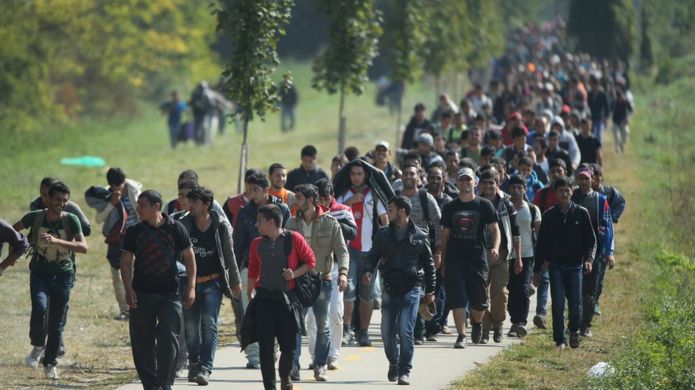By: Sara Adams
Impunity Watch News Reporter, Europe

BERLIN, Germany – Two tourists from China were arrested in Berlin on August 5th for giving a Nazi salute.
The two men were outside of the Reichstag, the German parliament building.
In Germany, using symbols affiliated with the Nazis is illegal. Modern applications of these laws are often used to curb the rise of “alternative right” (alt-right) movements in the country.
The tourists were released when their bond was paid. They still will face criminal proceedings.
Though years have passed, Nazism has become popular among the alt-right crowd all across the European continent.
In April 2017, a Dutch drugstore chain stocked “color by number” coloring books, one page of which produced a caricature of Adolf Hitler. The drugstore immediately made a public apology and withdrew the coloring books from the store.
And in Austria in February 2017, a man was arrested while he was dressed as Hitler. The man was visiting Hitler’s birthplace of Braunau am Inn. Glorifying Nazism is a crime in Austria as well.
Yet despite the sparse reminders of Germany’s horrible past, many continue to fight the current Nazi, or Neo-Nazi, movement.
A 70 year-old woman in late July spoke with news outlet Al-Jazeera about her anti-Fascist fight. She detailed her work on painting over and defacing any pro-Nazi street art she sees. The woman, Irmela Mensah-Schramm, has been doing this for three decades now.
Mensah-Schramm has been caught vandalizing before, and told by a judge to admit her charges and to promise to stop defacing property. But she held her ground, refusing to promise anything, and instead promising to not pay her fines for vandalizing.
Support of Nazism and Nazi ideals remains a crime in much of Europe. Yet the continent continues to see a rise in alt-right political candidates, some of whose values appear to coincide with the ideology of Nazism.
Violent crime against refugees and non-Western Europeans has also risen with the alt-right movement. Nearly 3,533 attacks on refugees or pro-refugee accommodations have been documented in Germany alone, as of 2016.
Of those, about 560 people were injured, 43 of those children.
For more information, please see:
BBC News – Chinese tourists arrested for Hitler salute in Germany – 6 August 2017
The Guardian – Chinese tourists arrested for making Hitler salutes outside Reichstag – 5 August 2017
ABC News – Berlin: 2 Chinese tourists detained for making Nazi salutes – 5 August 2017
Al-Jazeera – Germany: 70-year-old anti-fascist defaces neo-Nazi art – 28 July 2017
BBC News – Hitler coloring book removed by Dutch shop after outrage – 6 April 2017
BBC News – Hitler lookalike arrested in Austria – 13 February 2017



